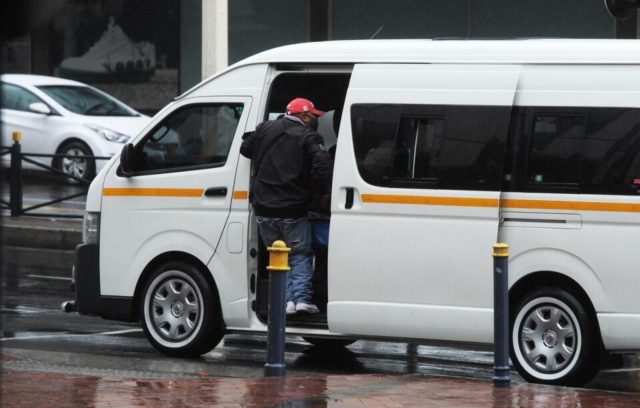The Transport Minister has called on the taxi industry to desist from its attempts to bully the government as the department pushes ahead with its plan to formalise and modernise the sector.
Transport Minister Fikile Mbalula has called on the taxi industry to desist from its attempts to bully the government as the department pushes ahead with its plan to formalise and modernise the sector.
Mbalula was speaking on Thursday as he launched the national taxi public discourse platform which has been organised to prepare for the upcoming National Taxi Lekgotla for the formalisation, empowerment and modernisation programme of the industry scheduled for October.
The launch was held in Germiston, Ekurhuleni, and attended by various sectoral stakeholders including Santaco, the Black Business Council (BBC) and trade union federations.
Mbalula said the taxi industry had to play an active role in assisting the government by ensuring that the industry is both formalised and regulated by the government in line with the plans by the current administration under President Cyril Ramaphosa.
“The time of flexing the muscle in the discourse and not talking and assisting in what needs to happen, I think we should put it in our back burner. This is the process we are starting in the department and it is not a reaction but something we planned from day 1,” Mbalula said.
He further said that the history of the industry, which remained informal decades since the 1994 democratic breakthrough, was littered with gruesome tales of conflicts and violence.
“Some of it does persist today and that has left many people dead and families robbed of breadwinners. It is a history of struggles for survival. This is an industry that has pioneered its own growth and evolution despite difficult odds. In 1987/1988 this industry was deregulated meaning that everybody must go and see for themselves.”
Mbalula said the planned taxi lekgotla would focus on reimagining the taxi industry for the future, where it would be a major player in the economy, adding that its current challenges required “our collective wisdom”.
“Unity of the industry remains a pervasive challenge as violence and conflict-driven by turf wars and leadership contestations continue unabated. Associations remain unregulated and operators are not held accountable through enforceable code of conduct,” he said.
The industry cried foul at the government after it was side-lined from the planned relief given to other sectors of the economy during the Covid-19 pandemic due to its informal nature.
Santaco president Phillip Taaibosch has slammed how the government has abandoned its own formalisation and empowerment plans for the taxi industry three decades into the democratic dispensation.
Taaibosch said the 1996 national transport task team (NTTT) which was set up by former transport minister Dullah Omar had focused on the unification of the industry, eradication of violence and economic emancipation but that the government over the years has ignored the recommendations of the NTTT over the years.
“This has broken our trust in the government. SA is now in the sixth administration with 25 years of democracy but the taxi industry remains unsubsidised. This is despite its accounting for 70% of the transportation of the employees, the majority of whom are government employees,” he said.
He said the taxi industry continued to suffer due to being financed at high-interest rates by banks for vehicles with little assistance from the government.
Mbalula highlighted that the lekgotla would have to come up with an empowerment model that would see real operators being the beneficiaries.
“We have committed to reimagining the taxi recapitalisation programme such that the real beneficiaries of this massive public investment are taxi operators rather than commercial banks, retailers and other corporates,” he said.
Government has already spent more than R4-billion for the programme.








